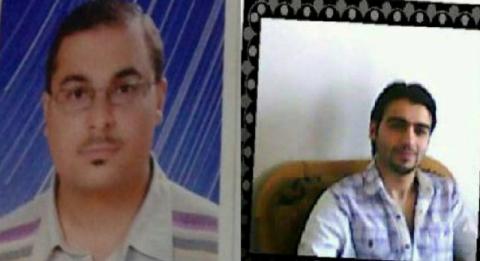
In 2013 a UN panel concluded that the crime of enforced disappearances in Syria was widespread and used as "tactic of war." Amongst the patterns identified, the panel was concerned over the prevalence of disappearance of individuals at checkpoints and highlighted that such practice was used by the government to punish those they suspect of supporting the opposition. Inside the Syrian military, enforced disappearance is also used as a tool to punish all those suspected of planning to defect.
Over the past month, Alkarama and Human rights Guardians documented four more cases of enforced disappearances committed by different actors in Syria, showing that this practice is still raging. On four cases, two concern drivers who were arrested and taken away to unknown locations by government or government affiliated forces while they were crossing checkpoints; two others concerned soldiers suspected of planning to desert the Syrian army. "These disappearances exemplify a pattern of violations that is deeply concerning, especially since they are committed in protracted and systematic fashion to instil fear amongst the population," said Inès Osman, Regional Legal Officer for the Mashreq at Alkarama. The cases were sent by Alkarama and Human rights Guardians to the United Nations Working Group on Enforced or Involuntary Disappearances (WGEID) asking them to request the Syrian government to provide information on the fate and whereabouts of the victims.
Checkpoints as "places of disappearance"
On 7 June 2012, Hashim Sahiuni, a cab driver, was stopped at a checkpoint controlled by the Syrian Political Security Directorate on the road to Al Hafa, Latakia, while he was driving women away from the conflict zone. At the checkpoint, members of the Political Security wearing civilian clothes arrested Hashim and took him to an unknown location. After being informed of his arrest, Hashim's mother enquired about his whereabouts in several security branches, but to no avail. To date, the authorities did not provide any information to the family on why and where he was detained, refusing to even acknowledge his arrest. The family managed to obtain through informal channels pieces of information according to which he had been transferred to Damascus and later to the Adra prison.
Over two years later, on 14 October 2014, another driver disappeared after his arrest at a checkpoint. At around 10 pm that day, Khalid Hussein, a driving instructor, was also arrested while he was crossing a checkpoint in Achrafieh neighbourhood, Aleppo. He was stopped by members of the Popular Committees - local militias supported by the Government – who arrested him and took him to an unknown location. After his arrest, his family tried to obtain information on his fate in several detention centres and police stations, but again the authorities refused to provide them any information or even to acknowledge his detention. According to information they obtained informally, Khalid was detained in the Air Force Intelligence vicinities.
Disappearance as reprisals against persons suspected of desertion
The two other cases of enforced disappearance documented by Alkarama concern soldiers suspected of willing to defect to the Free Syrian Army. On 3 March 2014, soldier Samer Al Tosh was with friends in Homs, in a building situated in an area under the control of the opposition forces and at the border with the zone occupied by the Syrian army during the siege of the city. Ordered to exit the building by a high officer in the Syrian army, Mr Al Tosh was immediately arrested and forcibly taken to an unknown place. In November 2015 Samer's family was informally told that he was detained in Branch 215, also called "Palestine Branch" of the Military Intelligence in Damascus. However, despite Mr Al Tosh's family inquiries to locate him, they were always denied any information on his whereabouts, and the authorities keep denying his detention.
More recently, on 11 June 2015, soldier Mohammad Saadouni was arrested at Regiment No. 44 (Special Unit) where he was serving his mandatory military service. On that day, Mohammad arrived at the unit and was immediately arrested by members of the regiment, who did not explain the reasons for the arrest, and then taken to an unknown location. Mohammad's family was later informally told by members of the regiment who witnessed the scene that he had been arrested for allegedly being affiliated with the Free Syrian Army and helping two soldiers defect from the unit. His family relentlessly inquired about him in several detention centres, but could not locate him.
For more information or an interview, please contact the media team at media@alkarama.org (Tel: +41 22 734 1008).
